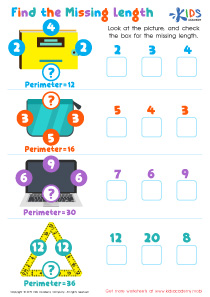Easy Subtraction Worksheets for Ages 5-9
39 filtered results
-
From - To
Looking to reinforce your child's subtraction skills? Our "Easy Subtraction Worksheets for Ages 5-9" are designed to build confidence and proficiency in young learners. Featuring engaging and diverse exercises, these resources cater to different learning styles, ensuring math becomes fun and approachable. Perfect for early graders, these worksheets cover basic subtraction concepts while gradually increasing in difficulty. Whether used at home or in the classroom, they provide excellent practice to strengthen foundational math abilities. Download now and watch your child achieve subtraction mastery through tailored, age-appropriate activities by Kids Academy!
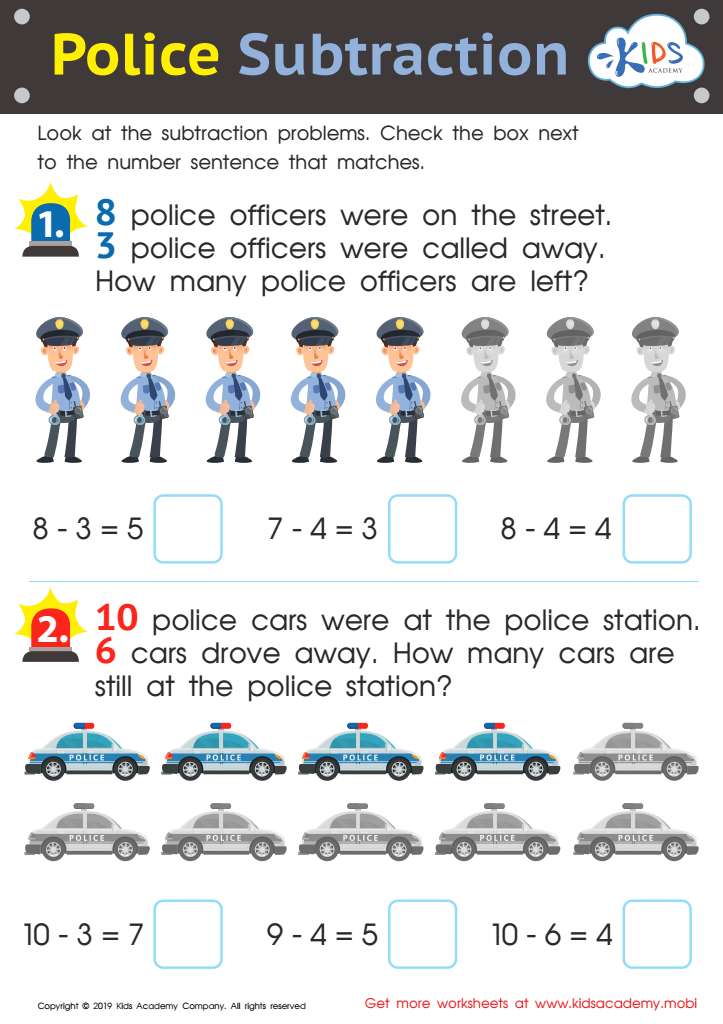

Police Subtraction Worksheet
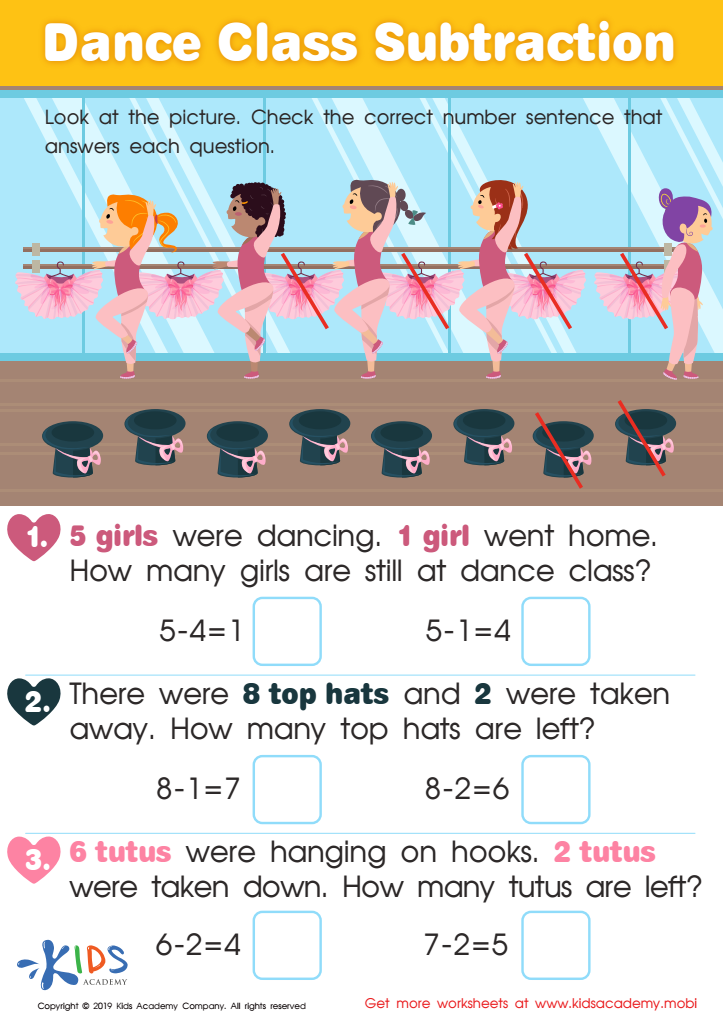

Dance Class Subtraction Worksheet
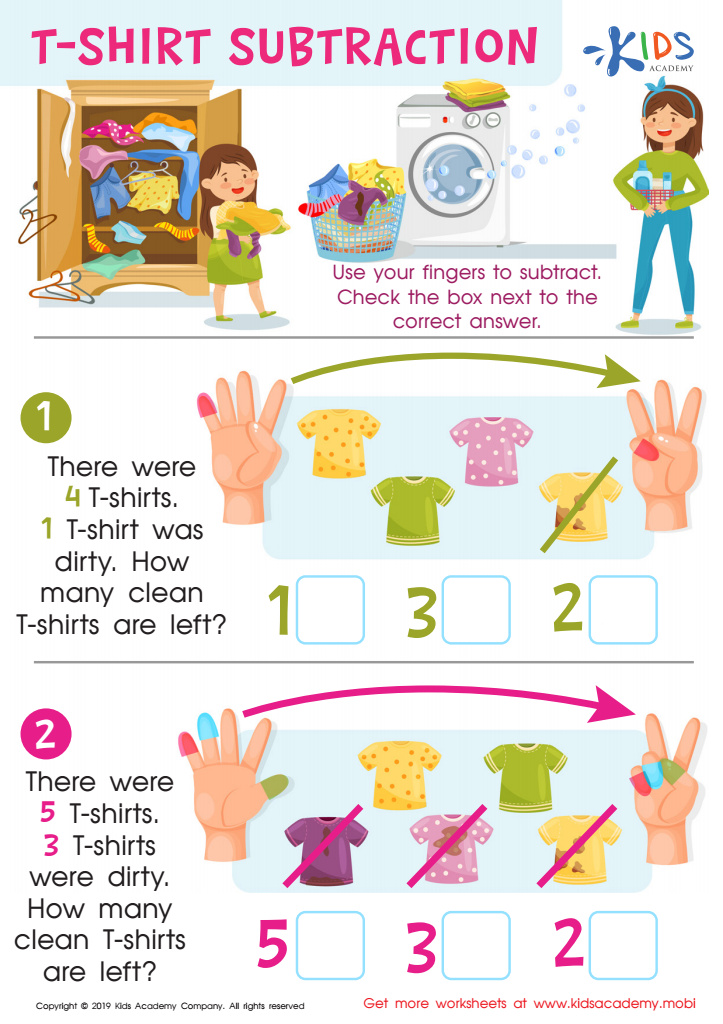

T-shirt Subtraction Worksheet
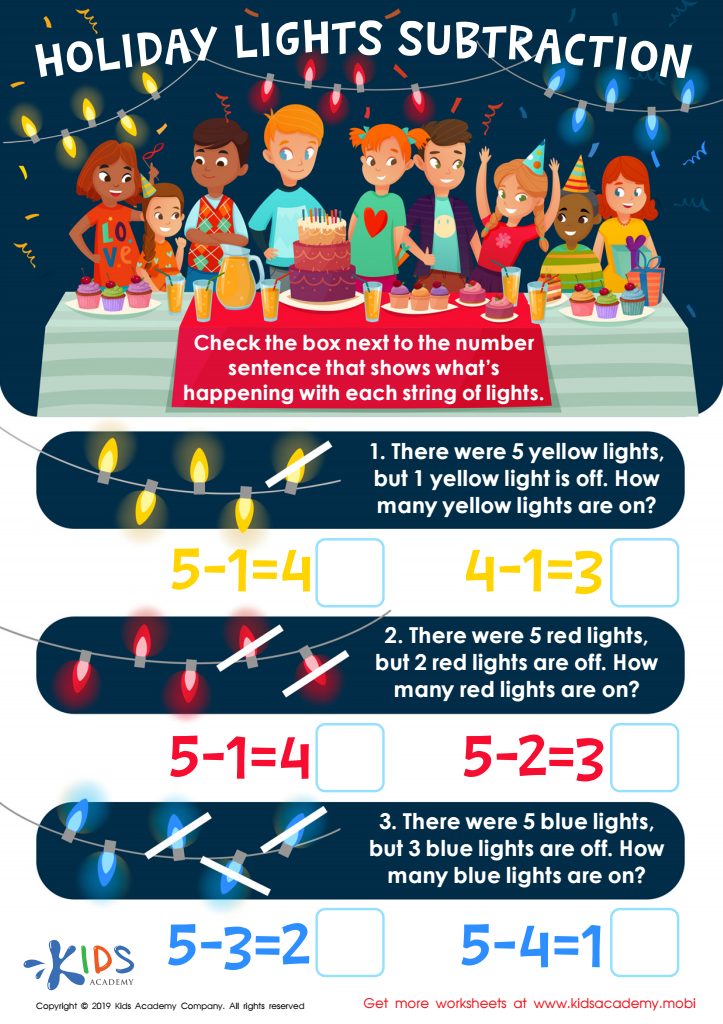

Holiday Lights Subtraction Worksheet
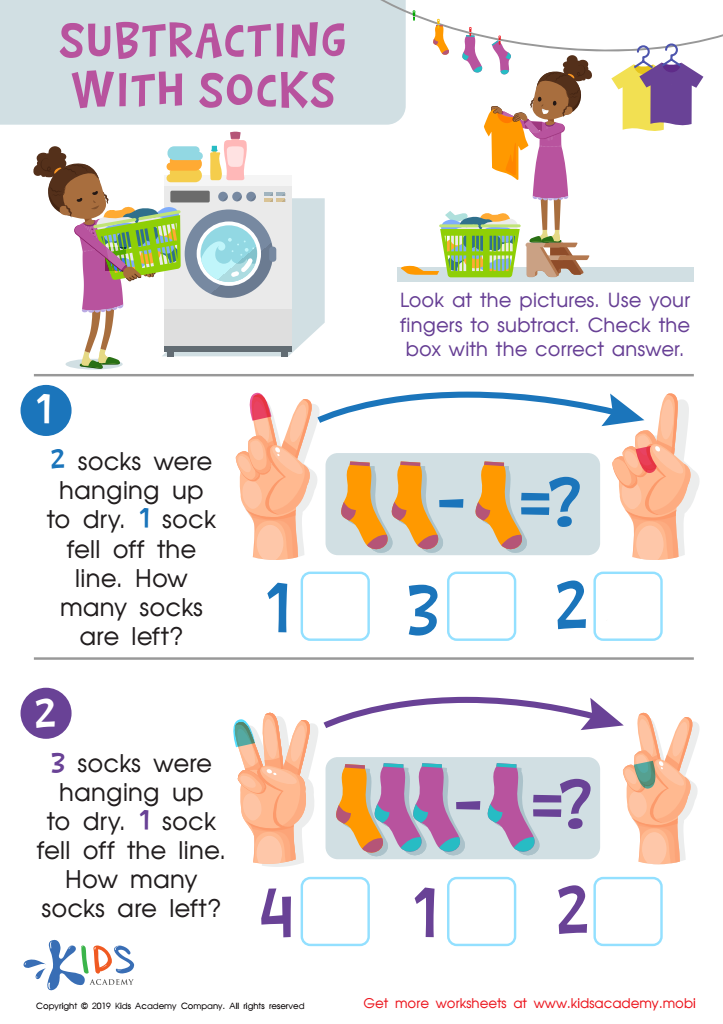

Subtracting Socks Worksheet
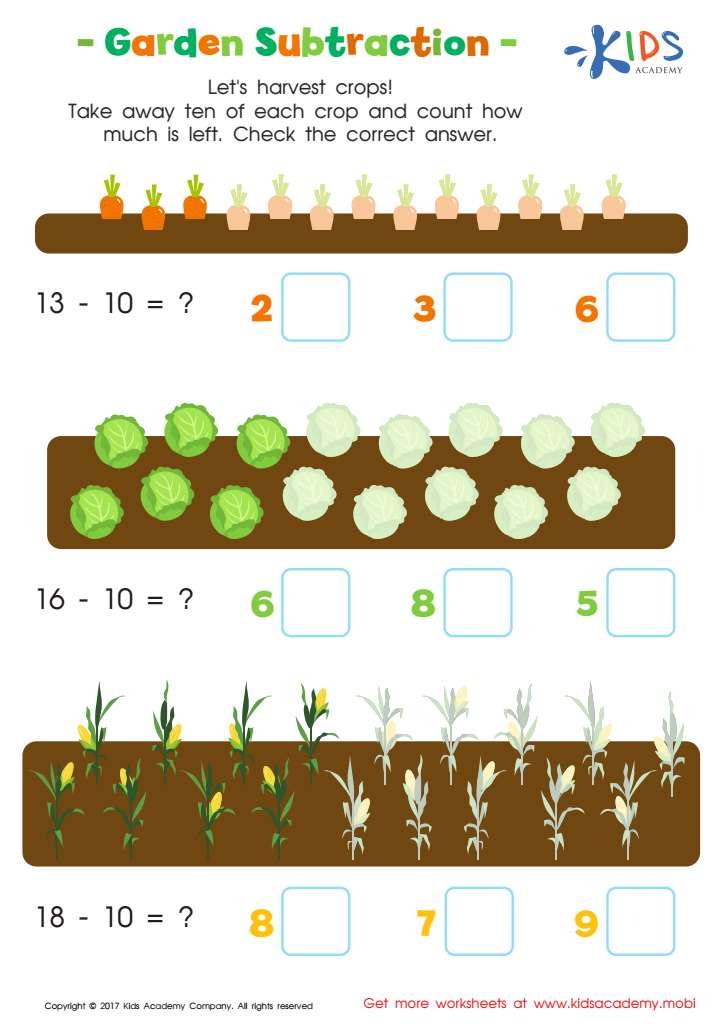

Garden Subtraction Worksheet
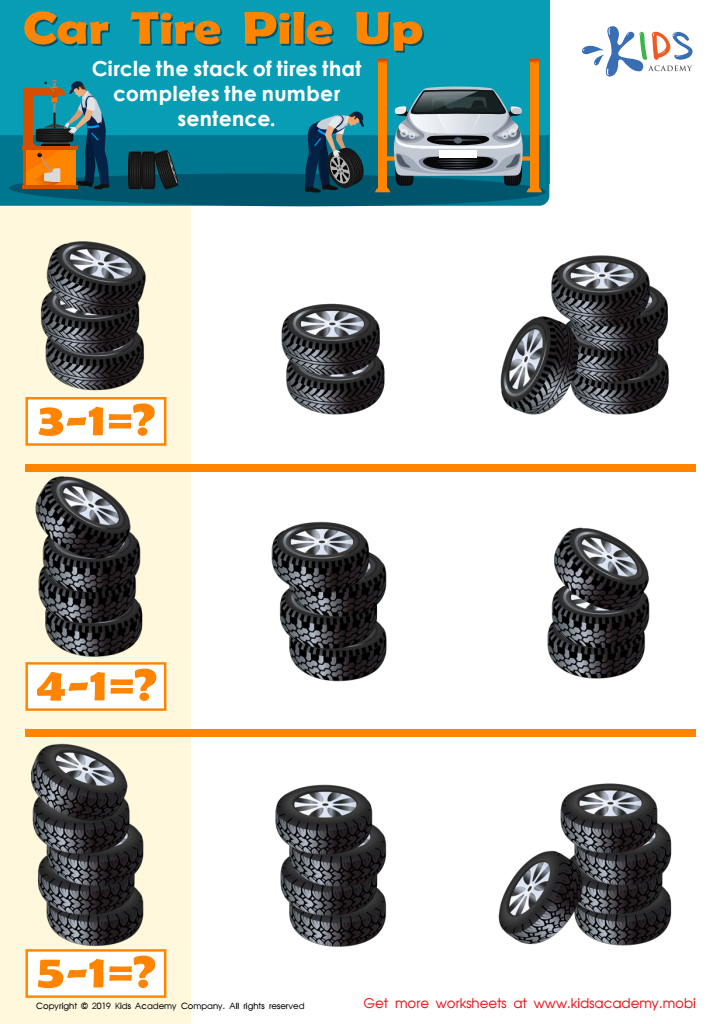

Car Tire Pile Up Worksheet
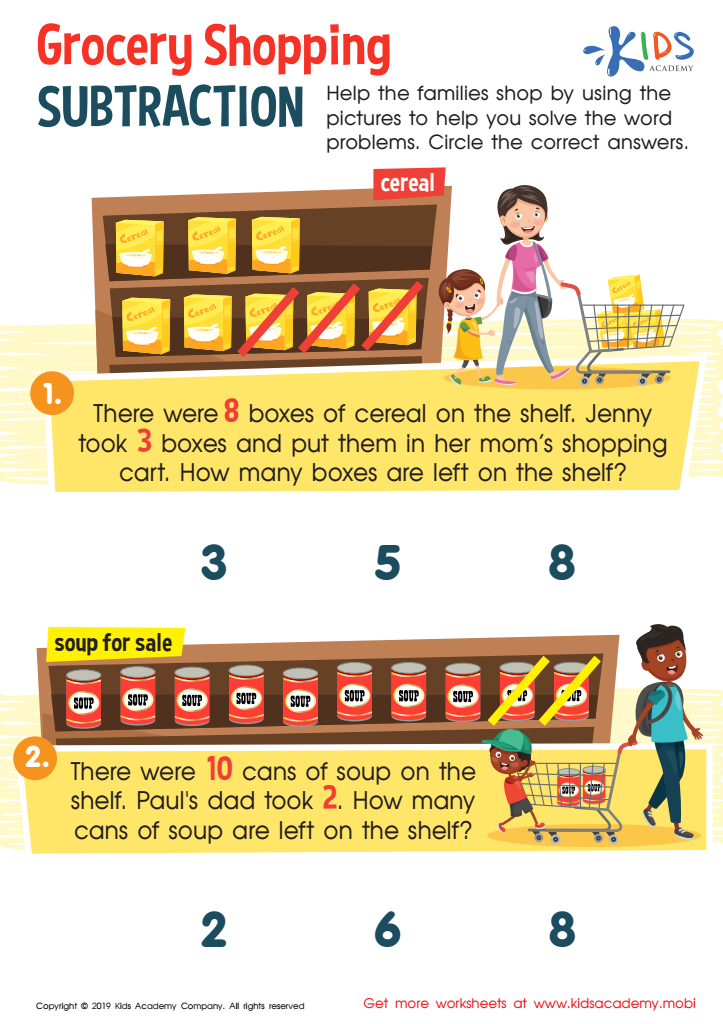

Grocery Shopping Subtraction Worksheet
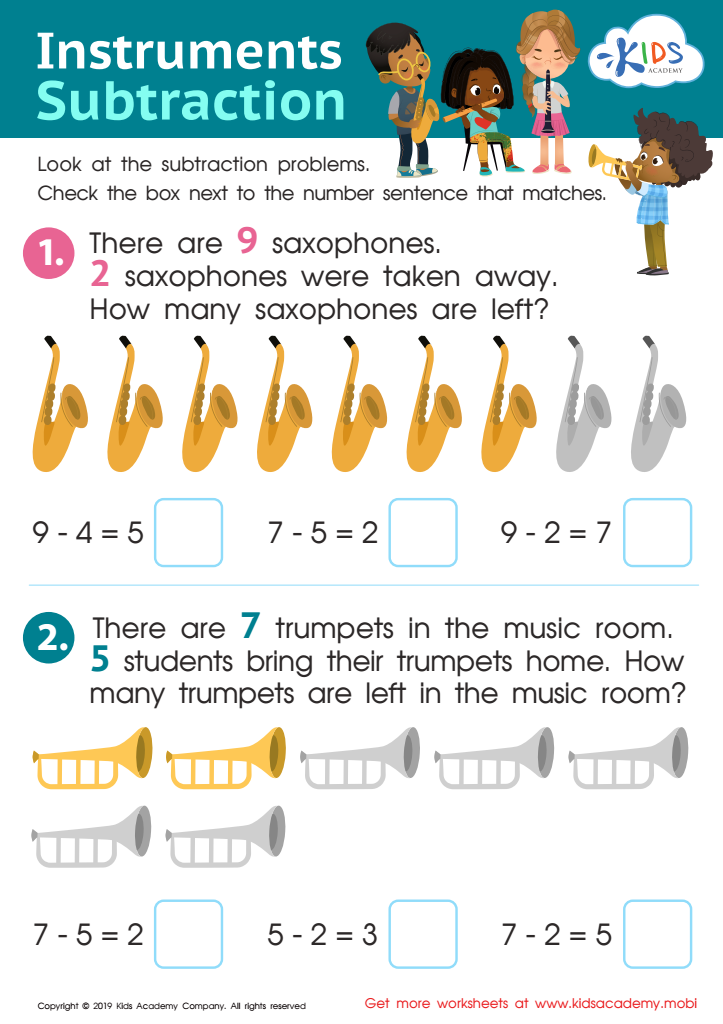

Instrument Subtraction Worksheet
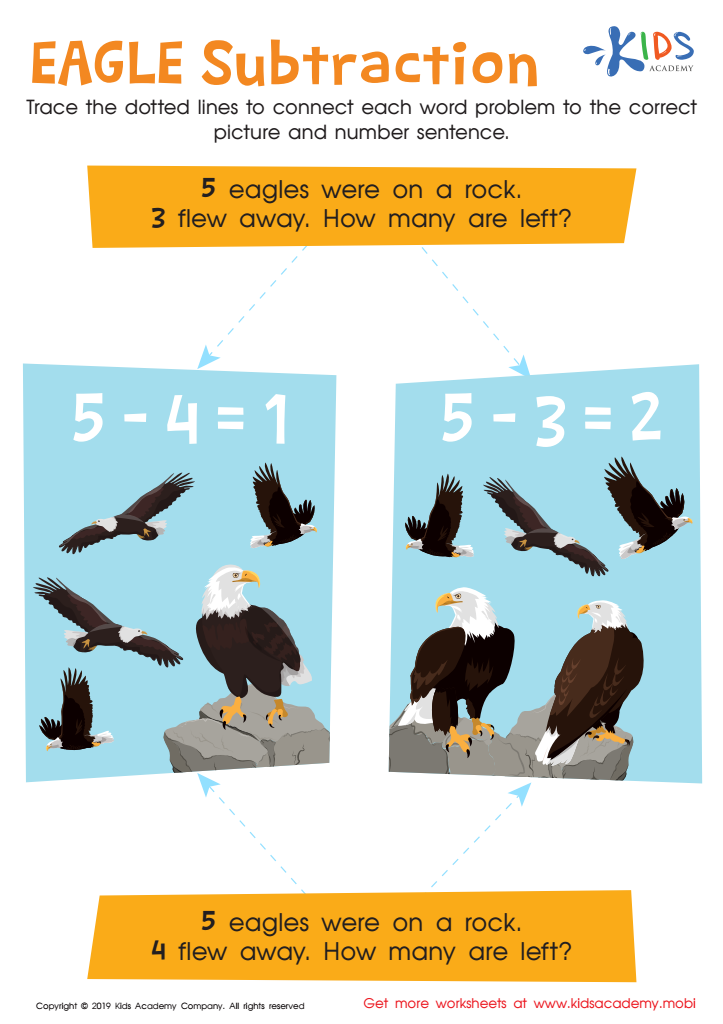

Eagle Subtraction Worksheet
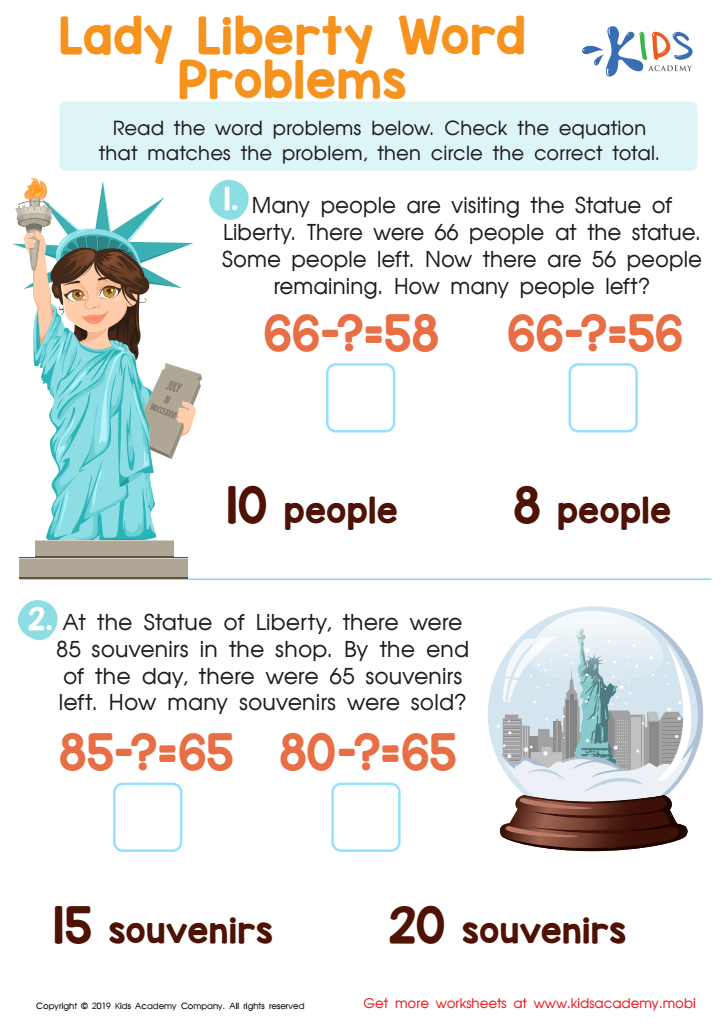

Lady Liberty Worksheet
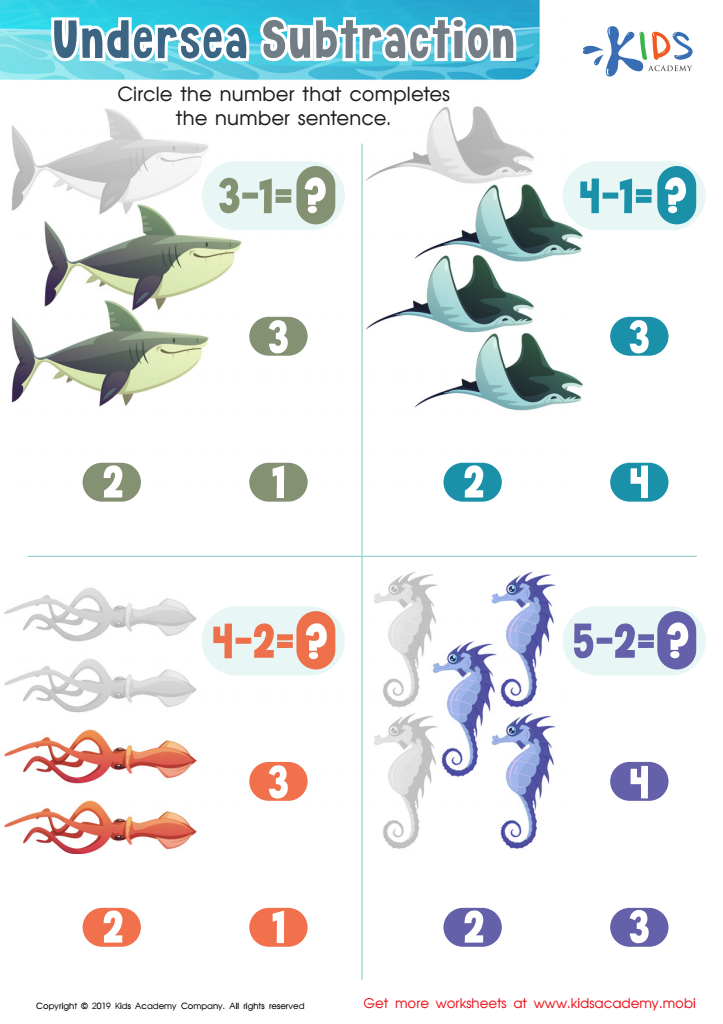

Undersea Subtraction Worksheet
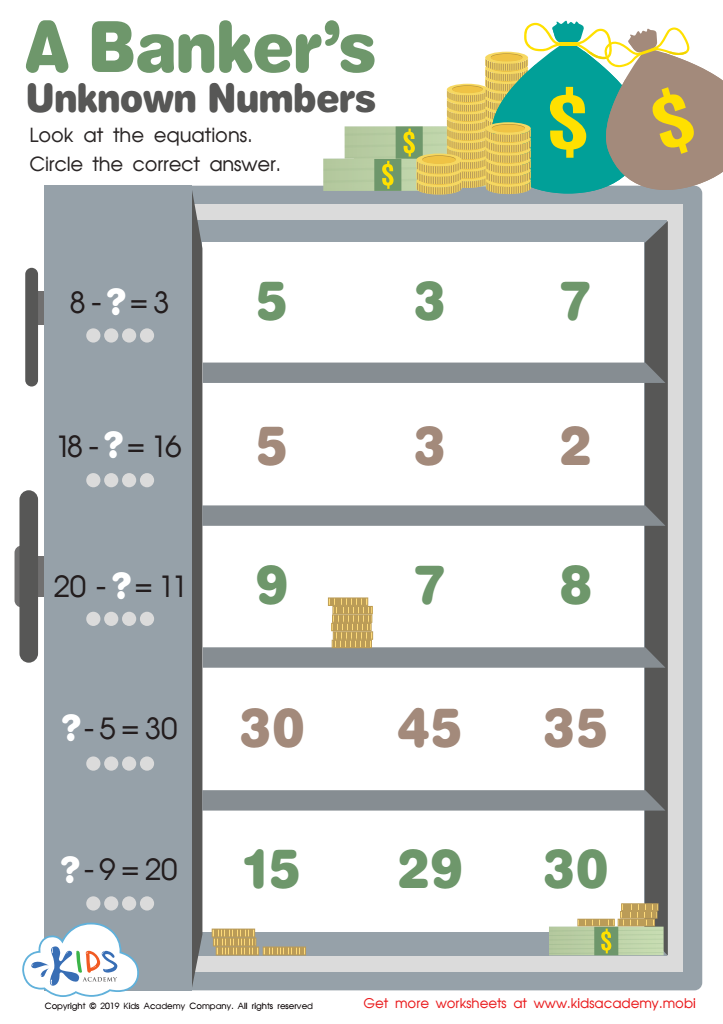

A Banker's Unknown Numbers Worksheet
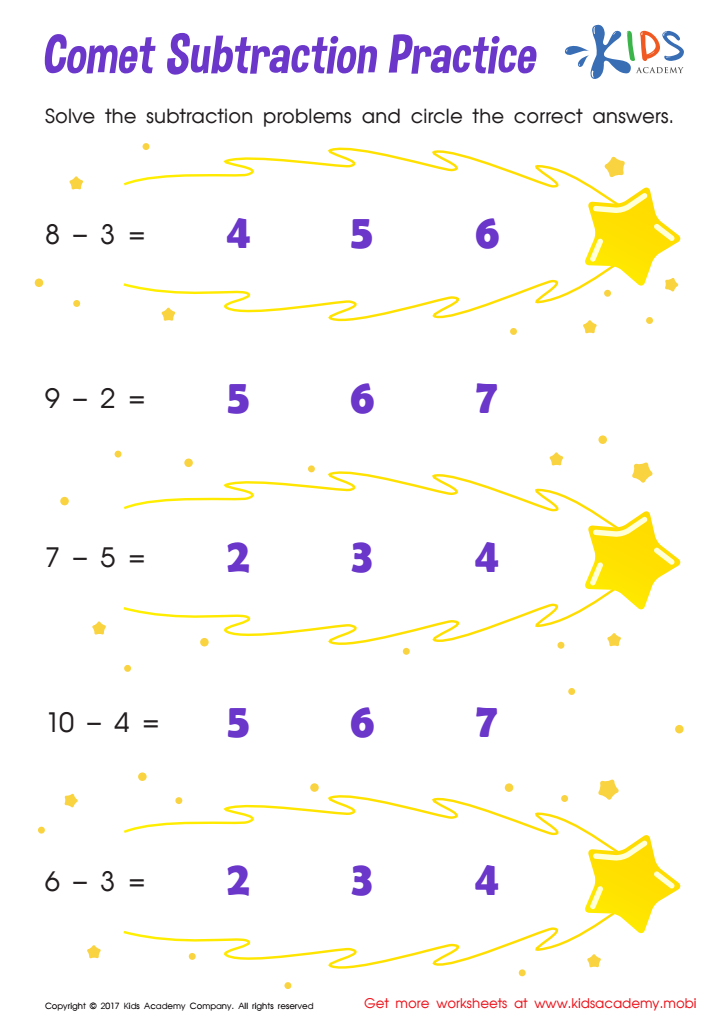

Comet Subtraction Practice Substraction Worksheet
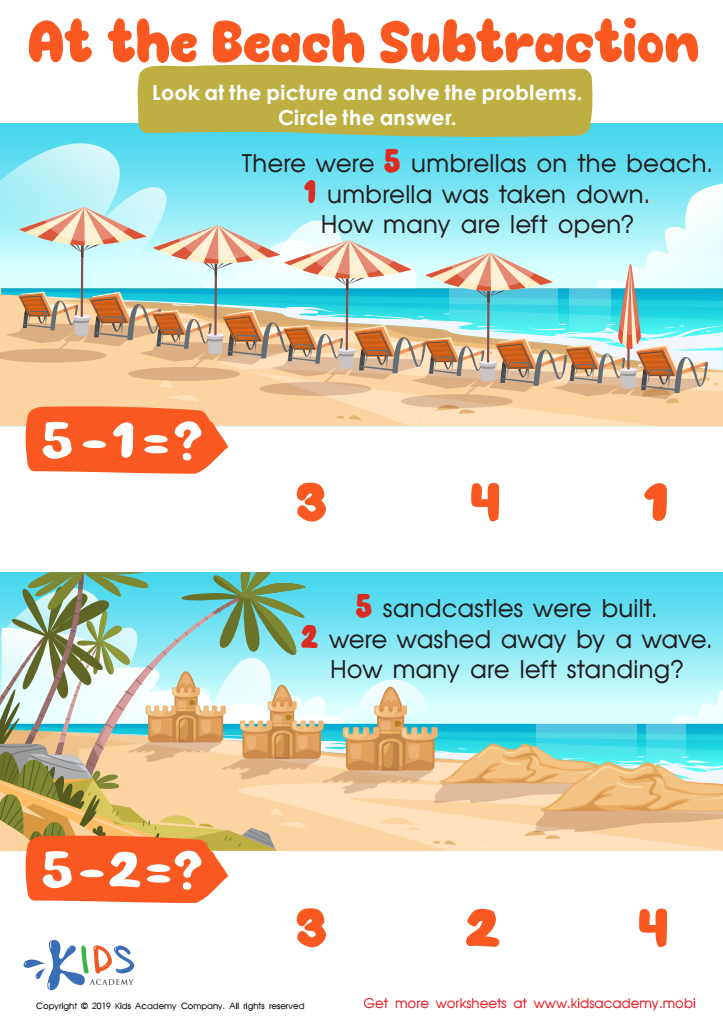

At the Beach Subtraction Worksheet
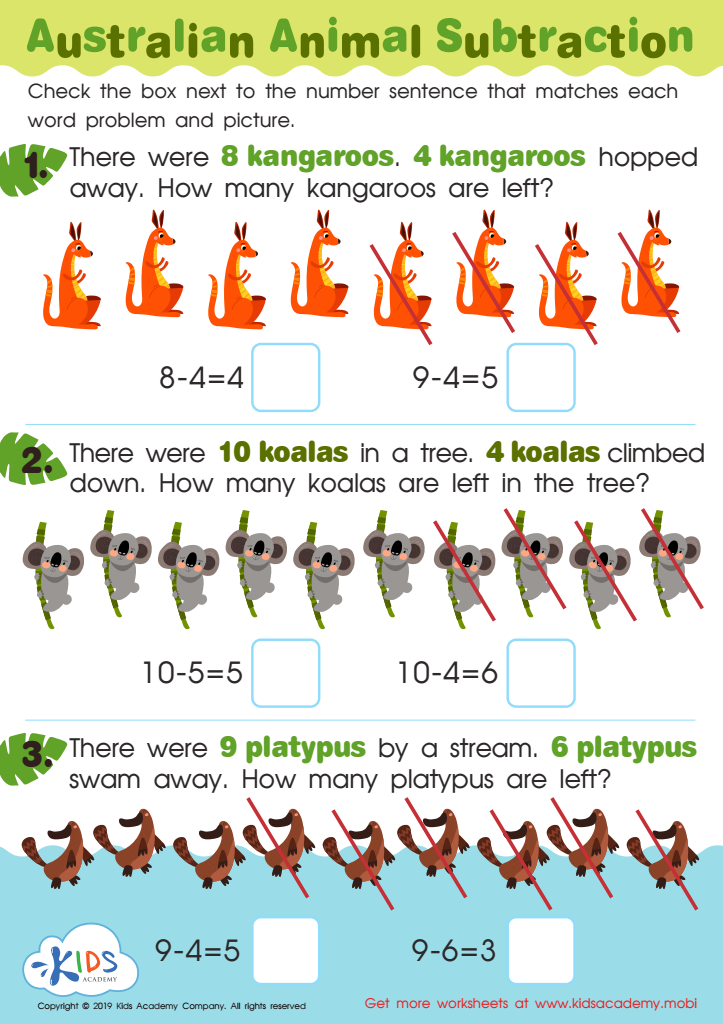

Australian Animal Subtraction Worksheet
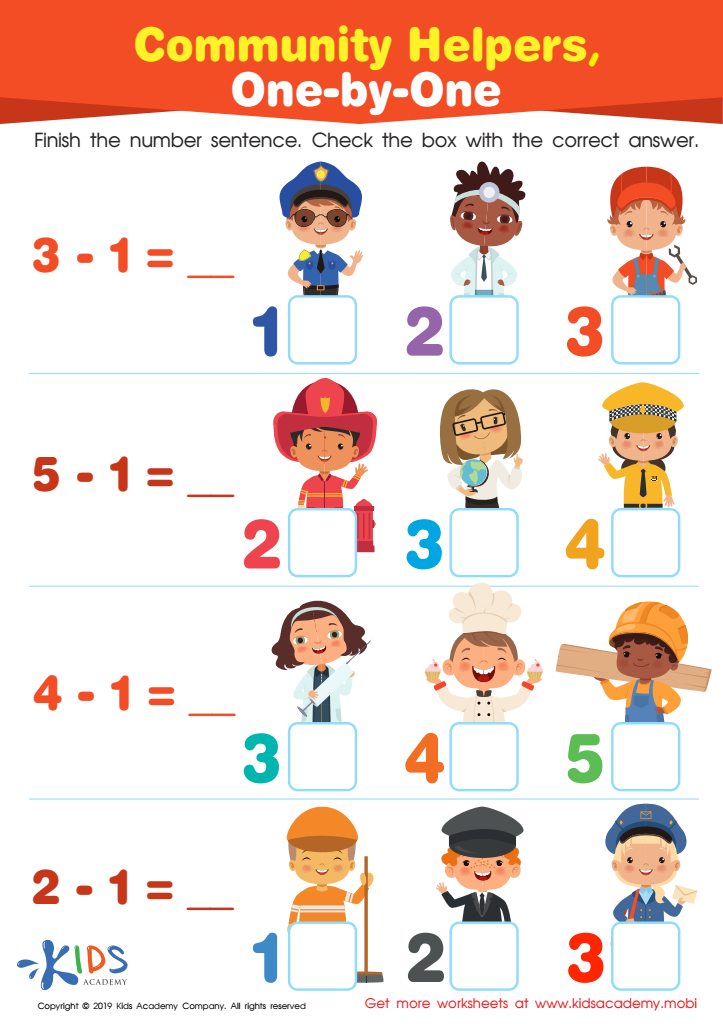

Community Helpers, One-by-One Worksheet
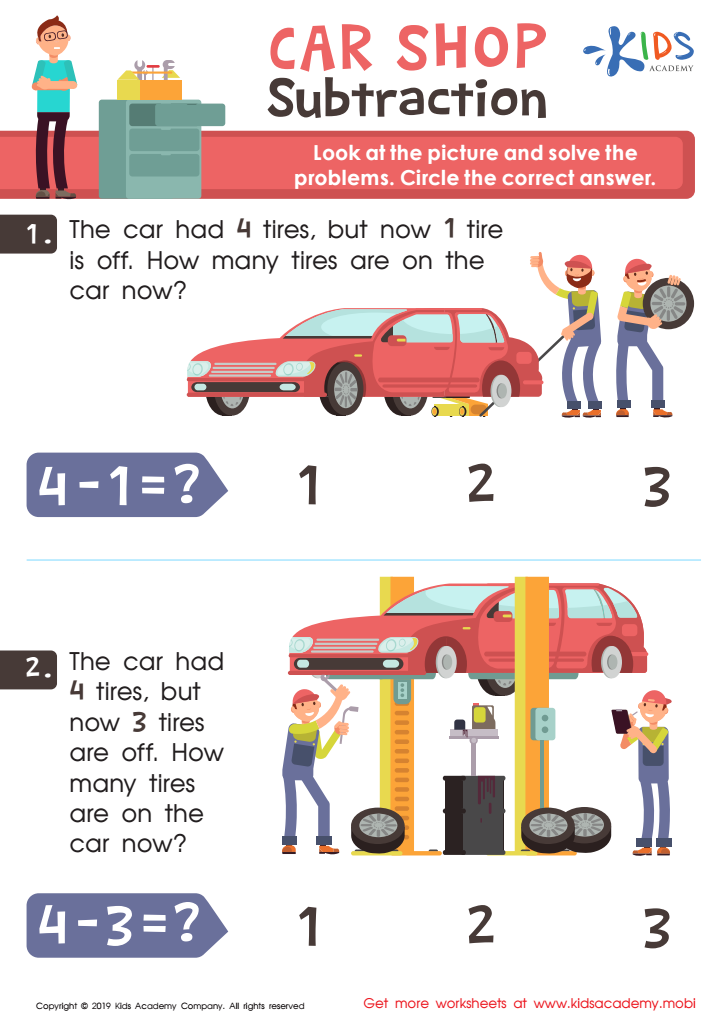

Car Shop Subtraction Worksheet
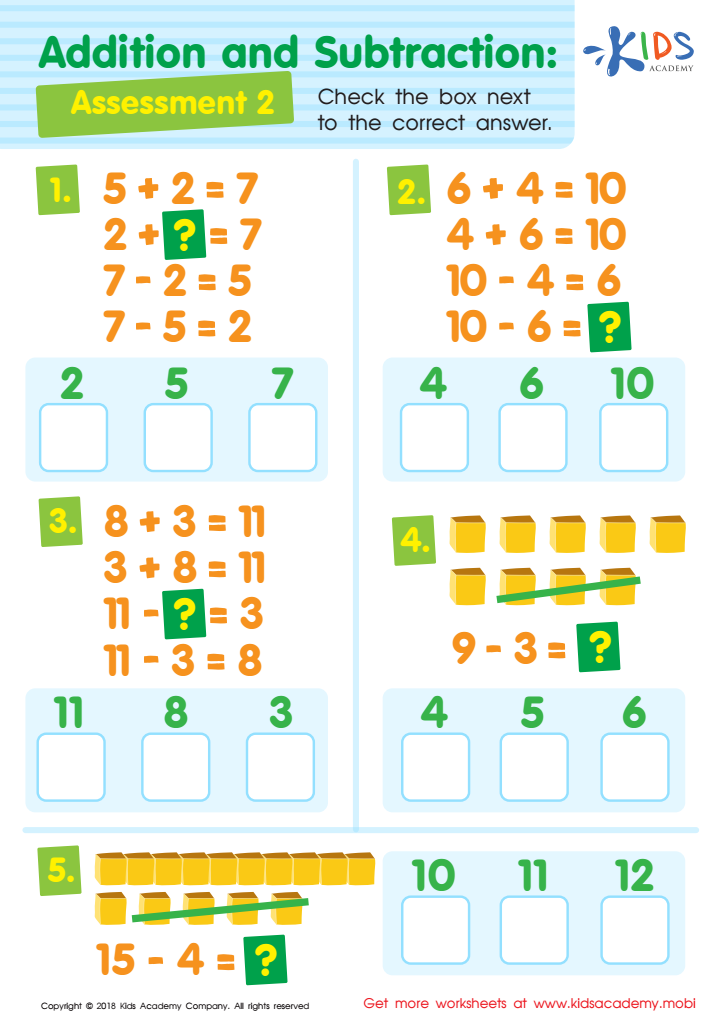

Addition and Subtraction Assessment 2 Worksheet
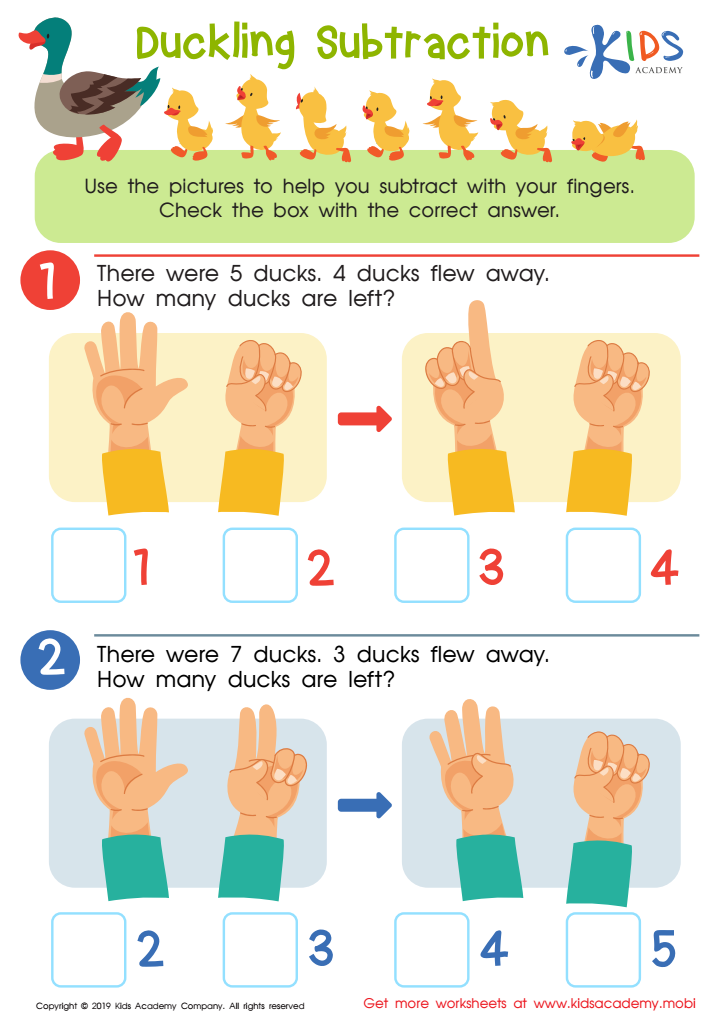

Duckling Subtraction Worksheet
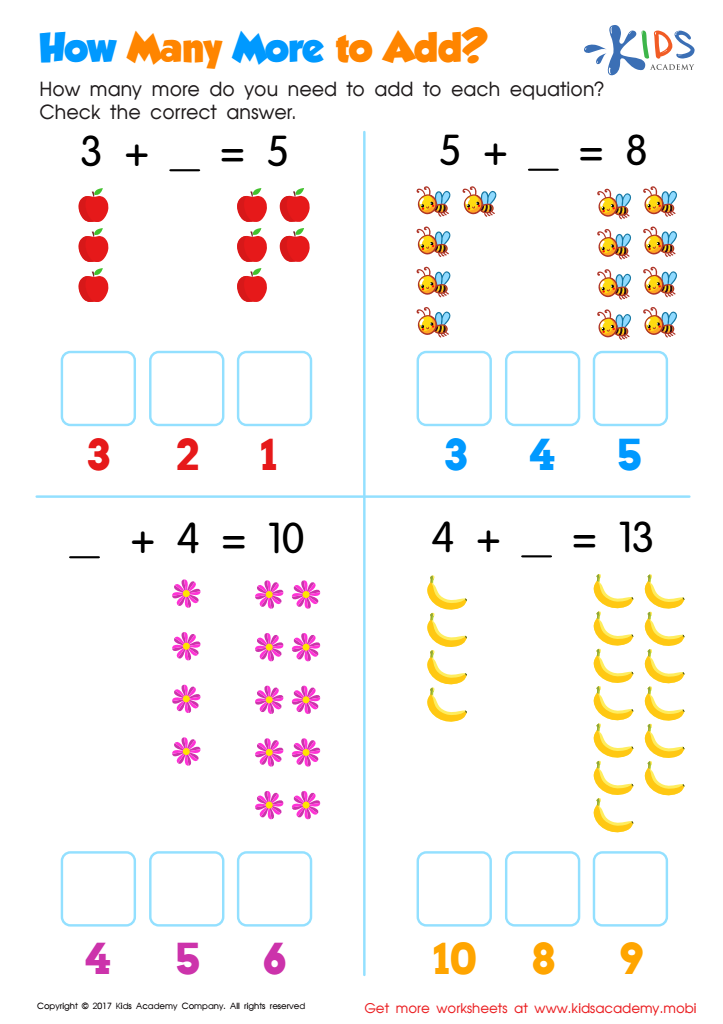

How Many More to Add Worksheet
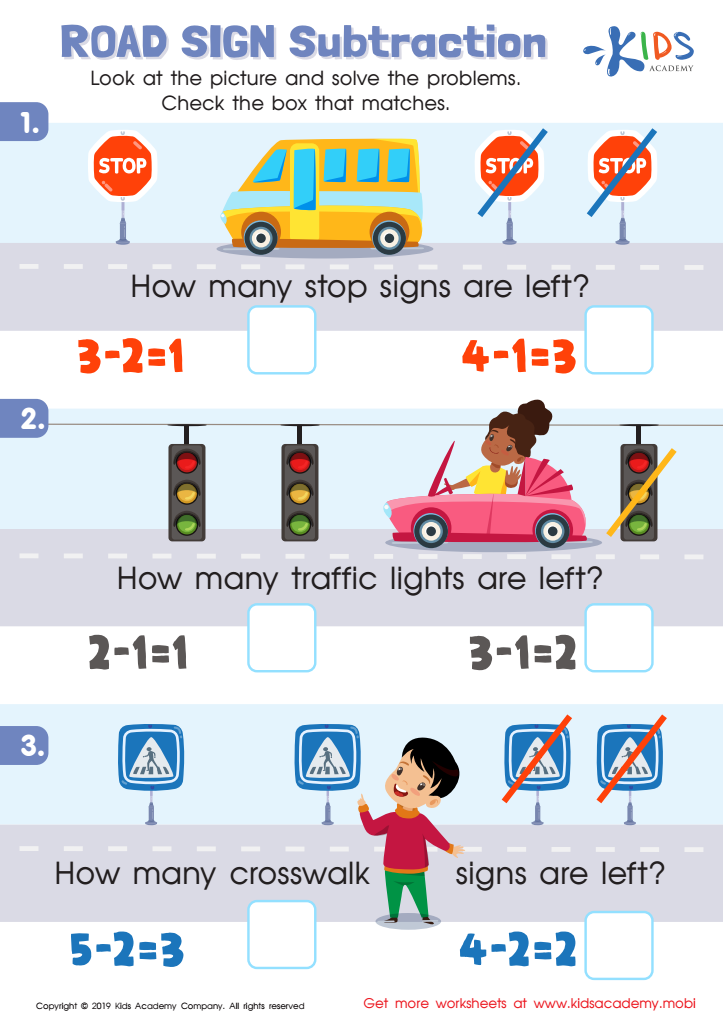

Road Sign Subtraction Worksheet
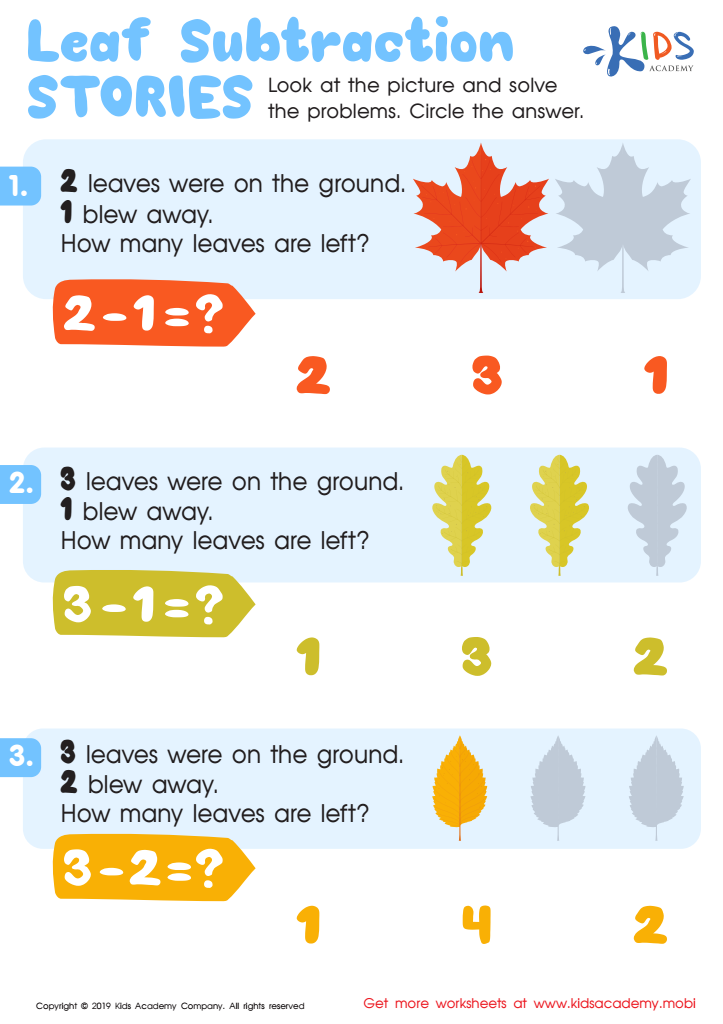

Leaf Subtraction Stories Worksheet
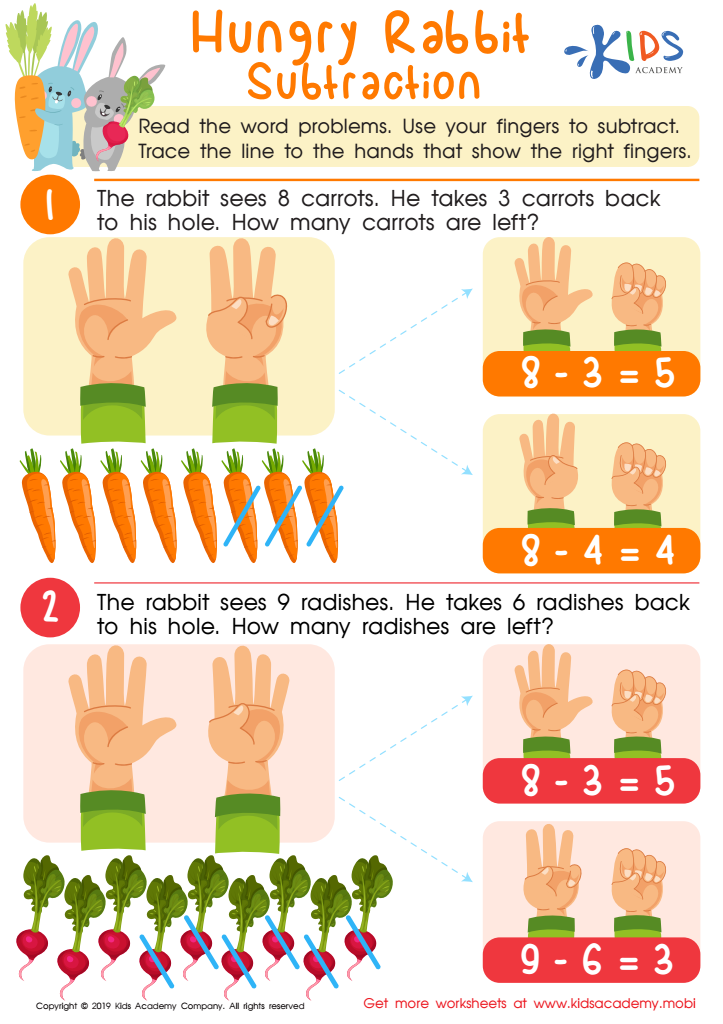

Hungry Rabbit Subtraction Worksheet
Parents and teachers should care about Easy Subtraction for children aged 5-9 because it forms a critical foundation for their mathematical understanding and problem-solving abilities. At this early stage, children are developing essential cognitive skills, and mastering subtraction is integral to their overall arithmetic proficiency. Subtraction is one of the basic building blocks of math that will be repeatedly expanded upon as they progress through more advanced mathematical concepts in higher grades.
Focusing on Easy Subtraction also fosters confidence in young learners. When children experience success with subtraction problems, it boosts their self-esteem and motivates their curiosity and willingness to tackle more complex math tasks. Moreover, early mastery of subtraction enhances their ability to think logically and critically, skills which are beneficial across all academic subjects and in everyday problem-solving situations.
For parents, engaging in their child's learning journey creates valuable bonding opportunities and allows for the reinforcement of classroom lessons at home, ensuring consistency in learning. For teachers, prioritizing Easy Subtraction in their curriculum helps cater to different learning styles through playful and minimal-pressure activities, making math enjoyable and understandable for each child. Ultimately, investing in the development of these foundational skills sets the stage for future academic success and fosters a lifelong positive attitude towards mathematics.

 Assign to My Students
Assign to My Students













